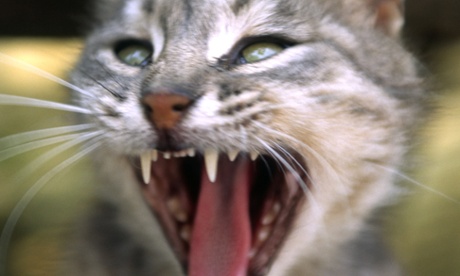
A British company which counts star fund manager Neil Woodford among its backers, is planning to put a new injection on the market for people allergic to cats.
Circassia, which in March pulled off London’s biggest biotech flotation for decades and counts Invesco Perpetual as well as veteran investor Woodford among its backers, is working on four main treatments for allergies caused by cat fur, house dust mites, grass and ragweed pollen. If successful analysts reckon they could rake in annual sales of $2bn (£1.3bn).
Chief executive Steve Harris said: “It’s a market that’s absolutely huge, with very limited competition. If you go into other areas of the pharmaceutical industry, for example oncology, there are tens and tens of companies competing.”
Armed with more than £200m of flotation proceeds, the Oxford-based firm has been able to accelerate its research and has recruited patients for the final phase of testing for the cat allergy therapy. The product should report results early next year. It then takes about a year to get approval from regulators and the new treatment could be on the market by the end of 2017 if all goes according to plan.
Unlike antihistamines which merely alleviate symptoms, Circassia’s treatments are aimed at the underlying problem. Allergies such as hay fever affect up to a fifth of the population worldwide and some develop asthma.
All the firm’s allergy drugs are injected and target moderate to severe sufferers. Four injections over 12 weeks would be needed for the cat treatment and eight injections for the grass and ragweed drugs over a similar period. That compares with traditional desensitisation treatments for hay fever, where the allergen is given over three years.
The treatments were developed by researchers at Imperial College London and acquired by Circassia in 2006 when the firm was founded. It is also developing a drug for birch allergy. Circassia will enjoy patent protection in the US for the cat fur, house dust and grass allergy treatments until at least 2030.
Harris said the firm was considering branching out into food allergies next.
Circassia made a loss of £35.1m last year as it stepped up spending on research and development, up from £20m in 2013.

